Cambridgeshire March marchers marching 'for no reason'
- Published
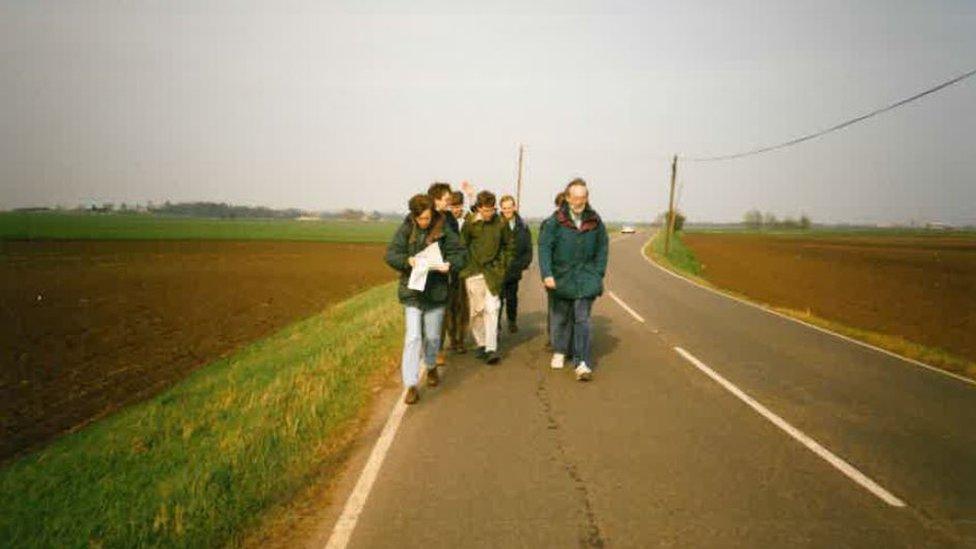
Marchers admit there is not a lot to do in the flat Fens of Cambridgeshire
Keen walkers are attempting to revive interest in the tongue-in-cheek "tradition" of marching en masse around a county "for no particular reason".
The March March march involves people marching from the Cambridgeshire town of March during the month of March.
Thought up by a Cambridge University mathematician in 1979, numbers have dwindled from a high of 27 marchers to this year's meagre four.
Organisers are hopeful of bolstering numbers before it dies out completely.
Back in the 70s, Jonathan Partington, a member of the university's pure maths department "saw the town of March, put the links together and said, let's do this walk", Colin Bell, this year's organiser, said.
"Then they did it again, and as these things do, it became a tradition."
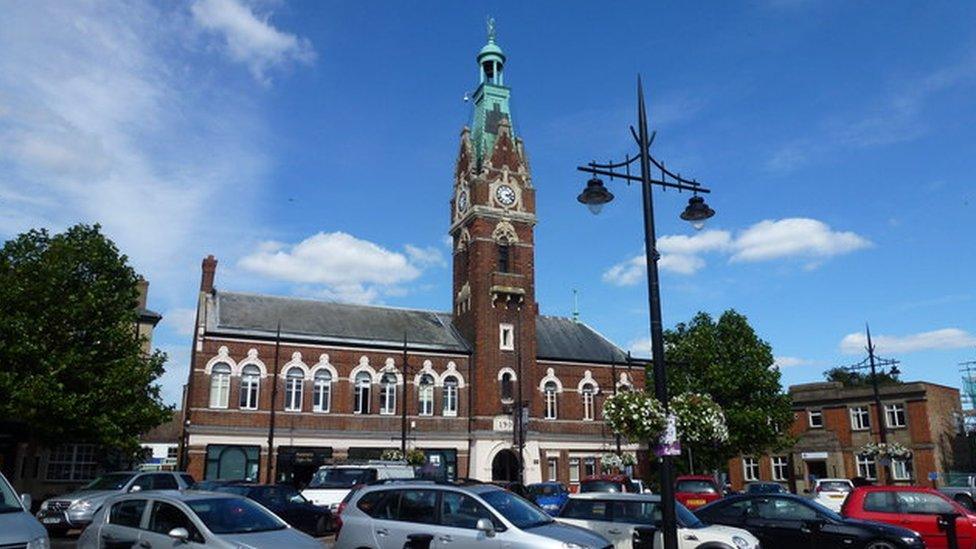
The town of March inspired a mathematician to dream up the "pointless" almost-annual tradition

Garden gnome-spotting is one of the highlights of the march
According to the march's website, "the March March march is a long, flat, pointless walk across the Fens from the town of March to Cambridge, a distance of about 30 miles".
"It has no purpose other than to be called the March March march" and was "invented because it seemed like a good idea at the time."

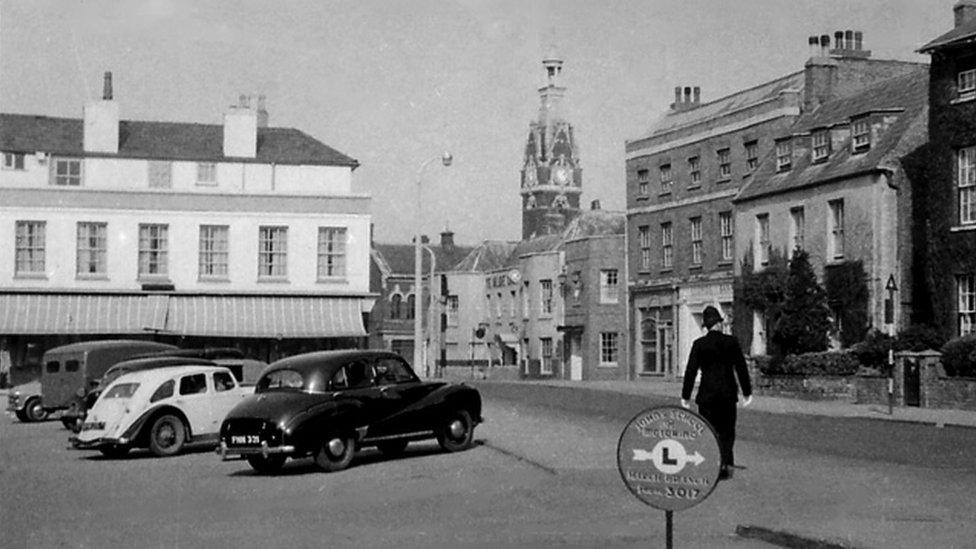
What's what in March
Old: It's close to Stonea Iron Age Hill Fort, the lowest hill fort in Britain which some believe was the site of Boudicca's last stand against the Romans
Gold: William "Billy" Barker was born in the town in 1817, but left to search for gold, which he found in British Columbia in Canada. The town of Barkerville was established in his name. However, he died penniless in a nursing home in Victoria BC
Silver: In 1981 a hoard of 872 Iceni silver coins was found at a farm in Field Baulk, March
Cholera: The town became a hotbed of the disease in 1849 when there were 81 confirmed deaths from cholera. It was caused partly by a lack of sanitation for the influx of railway workers into the town at the time
Stopping cholera: A night cart used to tour the town emptying the privy buckets and was still operating until the 1960s when the town finally got a sewage treatment plant

Highlights of the route include "lots of gnomes in Doddington" and "an interesting ice skating sculpture at Earith," Mr Bell said.
"Sometimes we sing to pass the time. There's a song called the March March March March - but it isn't really a march. It's Frère Jacques with various place names inserted."
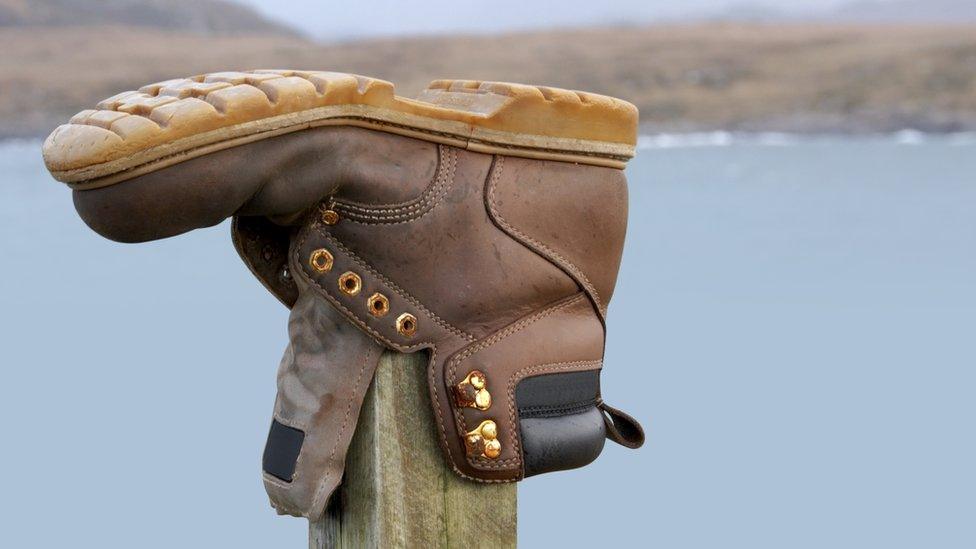
Too many people are hanging up their boots and the tradition of the march is dying out

The March March March March song (to the tune of Frère Jacques)
"Wimblington, Doddington,
Chatteris, Crafty Fox,
Somersham and Earith,
Willingham and Girton,
March March march!
March March march!"
(and so on)

Some years the march simply has not happened at all when no-one turned up. Other marches have been cut short by natural phenomena.
"We got caught in the Fen Blow once and had to give up near Chatteris," Mr Bell said.
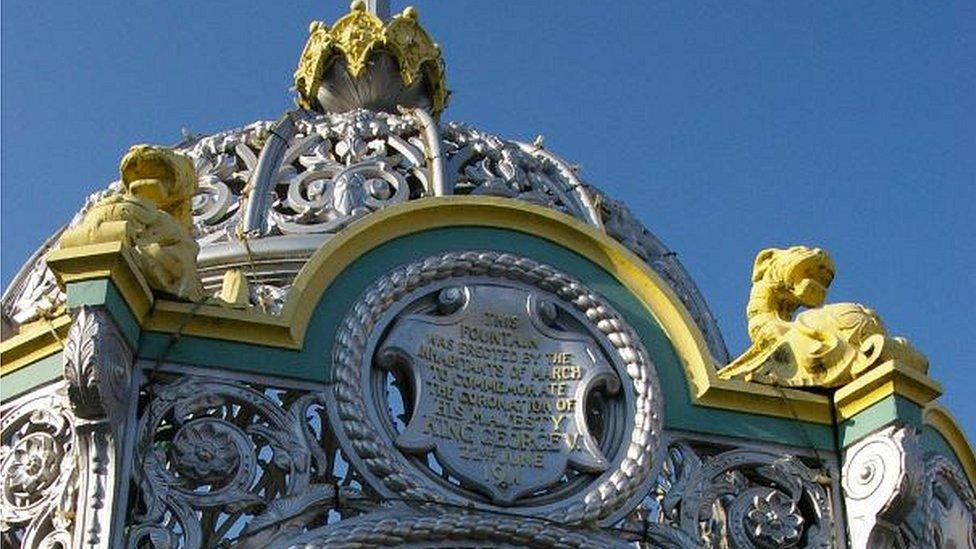
March's memorial fountain dominates the Fenland town
The Cambridge University tradition is, he fears, in danger of dying out as people associated with it get older or move away.
"I think it's a joke that's gone a bit too far... but there are enough mad people out there to properly revive the tradition," he added.
Barring blisters or more Fen Blows, the marchers expect to finish this year's trek at about 20:00 GMT in Histon, just outside the city.